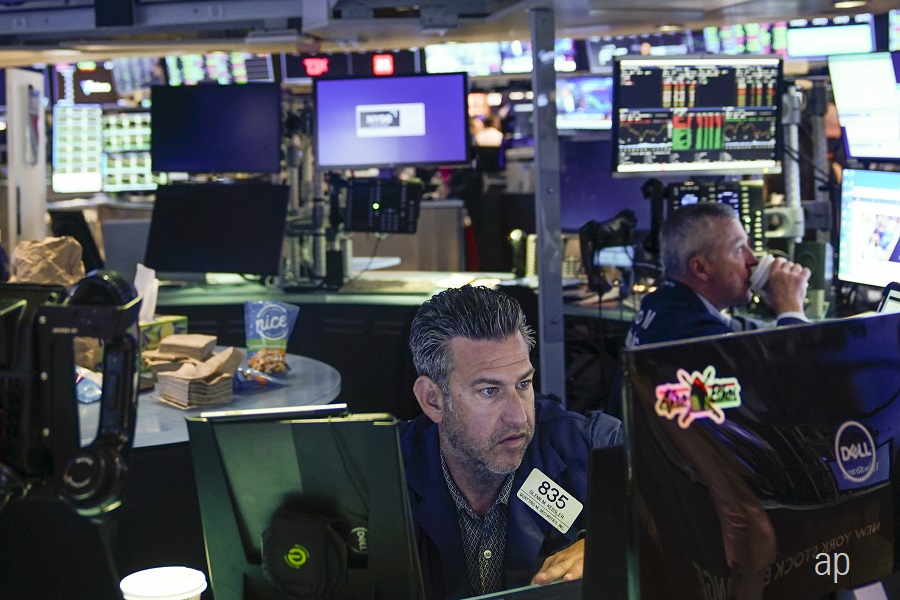The 2021 winners of the annual Morningstar Fund Awards–Hong Kong have been announced.
The awards recognise the best of the Hong Kong fund management profession, with winners selected by the Morningstar team.
The winner of the Best Equity Fund House is Matthews Asia. We spoke to the winning team and asked them about their strategies. Here is an edited excerpt:
What is your outlook for 2021 specific to the markets you cover, and how are you positioned to take advantage of opportunities and/or mitigate potential risks?
Answer: Economic recoveries tend to historically favour Emerging Markets and Asian risk assets. Typical recoveries are accompanied by an expansion of nominal GDP growth rate differentials which leads to a recovery in relative earnings growth, a favourable currency tailwind, contracting credit spreads, a boost to sentiment and ultimately a recovery in investor inflows. We feel this recovery in 2021 will play out much the same way. Within Asia, we expect to see growth driven largely by north Asian economies but also supported by a rebound in ASEAN, including Indonesia and Thailand.
We see three important drivers for equity prices—growth, valuation and liquidity. From a growth perspective, we feel convinced that corporate earnings are likely to be strong this year. Asia is on a path to economic recovery and the sheer size of the consumer base in Asia works in its favour. Valuations for Asia ex-Japan equities have risen, so there is less valuation support for the broader market, but we continue to see pockets of opportunity. Over time, the market will begin to discern between companies that can execute well on their vision, and seize market share in an altered business environment. We are finding good liquidity across Asia. Overall access to capital is also becoming better in much of Asia. Looking at IPOs, for example, there has been quite a few initial public offerings in Asia particularly in China/Hong Kong. We are also starting to see some IPOs also happen in South Asia. The confluence of these drivers will likely support medium to long-term growth across many parts of Asia.
The pandemic has created new opportunities for innovative businesses – including software and digital services. The region’s health care sector is also quietly setting a brisk pace for growth and innovation. The opportunities for companies that can help care for aging populations and treat chronic health conditions such as diabetes and heart disease continue to expand and grow. Looking ahead, it is difficult to forecast how quickly daily business patterns may return to normal given the uncertainty in how quickly vaccines can be distributed. This highlights the importance of investing with a long-term view.
What do you think are the success factors in your corporate culture that enables your firm to consistently deliver for investors?
Answer: We believe our strategies’ long term performance benefits greatly from our firm’s culture. Elements of our firm culture that contribute to our clients’ and our firm’s success include:
-Independence–enables us to be to be long-term and steadfast in the face of volatile markets.
-Integrity–we strive to protect our clients’ interests at all times, and close funds when warranted.
-Commitment to Asia–we seek both to understand and participate in Asian cultures and trends; among our investment professionals, over 80% have lived or worked in Asia and more than three-quarters speak at least one Asian language, reflecting our commitment to Asia and understanding of the region in which we invest
-Collaboration–we believe that continuous sharing of ideas and healthy debate lead to better informed investment decisions and minimized risk.
-Accountability–portfolio managers make (and live by) their buy and sell decisions and are compensated based on long-term performance. Compensation may include grants of firm ownership shares.
What are your future business plans, such as the launch of new products or geographical expansion?
Answer: Over the next several years, Matthews Asia seeks to solidify its position as the largest Asia focused investment specialist in the U.S. while we continue our client development initiatives in Canada, Europe, Asia and Latin America. We do not have specific asset goals. We believe that most investors do not have adequate exposure to Asia, and that a core Asia portfolio is an essential component of a globally diversified portfolio. As financial advisors, bank and broker/dealer research teams, institutional investors, and consultants have expanded their global equity and fixed income interest to include dedicated Asia Pacific offerings, we have expanded our client services/marketing teams to address their interests and servicing needs. As Asia’s equity and fixed income markets continue to broaden and deepen, we will look to increase our investment and client service presence in the region.
With Asia's growing prominence in emerging markets, we have launched an emerging market strategy that takes advantage of nearly 30 years of investment experience in the region and apply that to markets outside of Asia. We are excited to be broadening our Asia investment solutions for our investors that we believe will enable them to benefit from our distinctive long-term investment perspectives.
Since the firm’s establishment in 1991, Matthews Asia has launched innovative investment strategies across the risk-reward spectrum. We will continue to introduce new strategies as appropriate based on our careful assessment of their long-term investment potential. We believe that the investment needs of institutions, advisors, professional and retail investors will continue to be well-served in most cases through pooled investment vehicles. As we launch new investment strategies, we will carefully consider the most appropriate vehicle to best capture investment opportunities for investors.
What is the firm’s approach towards sustainable investing? How has this been incorporated in the product range and/or investment process?
Answer: Working diligently to help our clients reach their financial goals, we are mindful of the role of capital in shaping the world we want to live in. As engaged shareholders and bondholders in our portfolio companies and issuers, we seek to foster their sustainability—and profitability.
We also believe that an appreciation of sustainable and socially responsible business, health and environmental practices begins in the office, within our own Matthews Asia community. That’s why we created the Sustainability Working Group to promote sustainable and responsible practices at the firm, as well as to foster employee wellness. The group obtained Gold LEED certification for the office headquarters and created a carbon offset program for business travel.
We strive to be good global neighbors and citizens. We believe economic progress requires a healthy environment where people can live and work and a broad middle class supporting economic growth and social inclusion. Economic progress is also supported by transparent corporate governance structures that can help attract domestic and international capital.
In February 2016, Matthews Asia became a signatory to the UN’s Principles for Responsible Investment (UNPRI), principles that when implemented, contribute to developing a more sustainable global financial system. By doing so, we commit ourselves to consider the investment implications of ESG issues within our portfolio management and decision-making processes, when appropriate and consistent with our fiduciary duties. We believe consideration of ESG issues is particularly relevant to Asia, where we find many of the world’s sustainability challenges—and potential solutions.
Environmental, social and governance (ESG) factors are often synonymous with long-term investing. Accordingly, ESG factors tend to be highly compatible with our bottom-up, fundamental investment process.
Corporate governance is the ESG factor we look at most closely across all our portfolios to identify risks. We believe governance influences social and environmental factors, providing a starting point for analysis. While we generally do not employ negative screens based on environmental or social factors, poor corporate governance may exclude an issuer from consideration for our portfolios.
In addition, our portfolios are typically not constrained by sector or industry, and often look quite different from our benchmarks. In-depth knowledge of local markets helps us to evaluate and prioritize ESG-related risks according to their potential impact on portfolios. In some of our portfolios, ESG considerations may rank high. In other portfolios, ESG considerations may be simply one set of inputs among many that we consider as part of our fundamental research.
What are some of the firm’s diversity and inclusion initiatives?
Answer: At Matthews Asia, we foster an environment where we can all bring our full authentic selves to work. We believe that a diverse and inclusive work environment is key to upholding our core values of Integrity, Client Focus, Initiative and Teamwork.
In 2019, we formed a Diversity and Inclusion Working Group to deepen our commitment to a diverse and inclusive work environment for our employees. The Group strives to integrate and progress the firm’s diversity and inclusion efforts via 1) raising awareness through speakers and celebrations of diversity, 2) providing education and tools to employees, 3) measurement of diversity data and accountability metrics for senior managers, and 4) assessment of policies and processes. They provide regular training and development across the firm to deepen our commitment to a diverse and inclusive work environment for our employees.
Since 2019 the group has organized various events and resources, from educational talks and training to cultural celebrations. In recent years, Matthews Asia marked Black History Month, Lunar New Year, International Women’s Day, Pride, and Ramadan for example. With regards to education talks and training, some of the initiatives focused on Unconscious Bias and Gender Equity. During the Covid-19 pandemic, the group also created practical guides to help employees run inclusive meetings and help working parents in pandemic times.






.png)
:quality(80)/cloudfront-us-east-1.images.arcpublishing.com/morningstar/EWMG3XJM2RA4ZLC5J5M6SSVVZA.jpg)
:quality(80)/cloudfront-us-east-1.images.arcpublishing.com/morningstar/FGC25JIKZ5EATCXF265D56SZTE.jpg)












